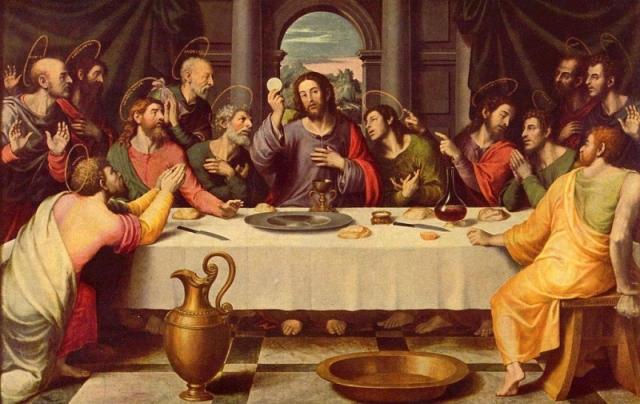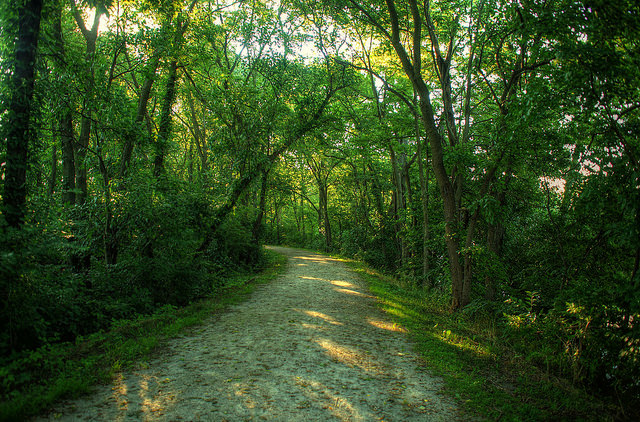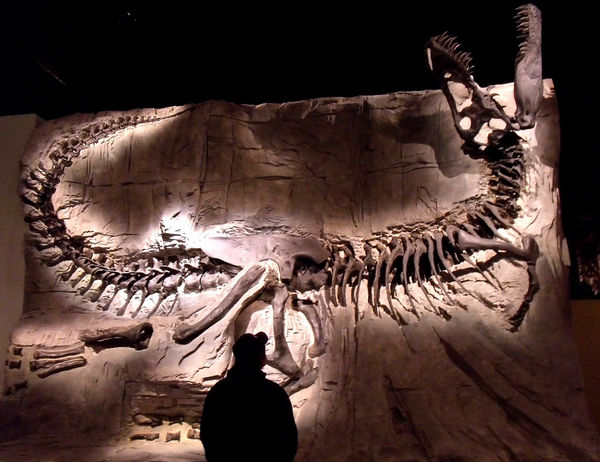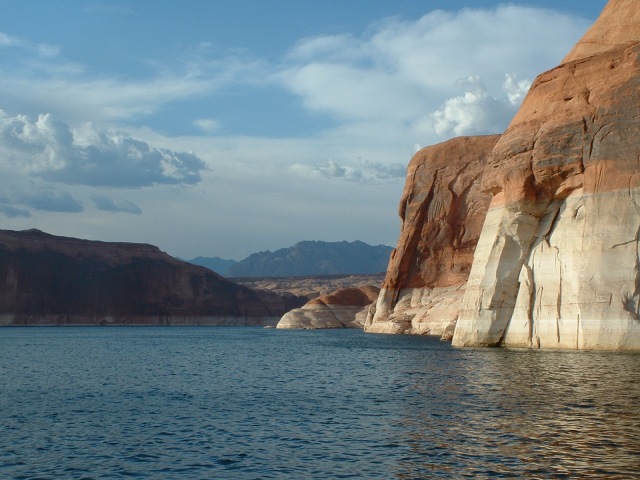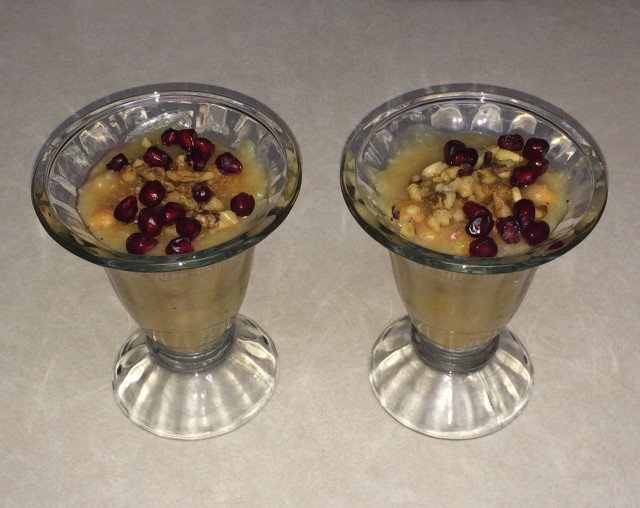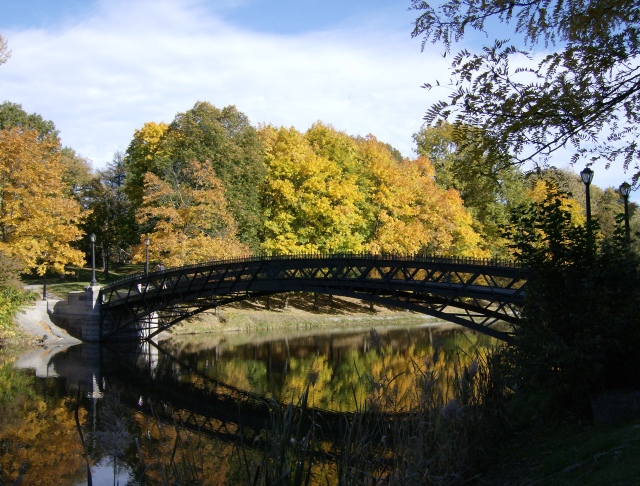As a Christian in high school, I felt that I was pretty set in my beliefs—that nothing would ever change my opinions on God and religion. Even though I didn’t agree with all Christians or all Christian leaders, I felt that nothing could shake my belief in Jesus as God. To me, there was no other option; for me, to believe in the ‘true’ God was to believe in the trinity.
As often happens to many young people, my college years opened my eyes and mind to a world filled with people of differing beliefs. I was introduced to different ways of thinking, new ideas, and new religions. It was in college that I really came to understand who I was and more firmly establish my personal opinions and beliefs—and not just regarding religion.
In the first couple years I was in college, I chose to continue to surround myself with those of similar beliefs as those I was raised with. My first year, my roommate was also a strong Christian with a similar religious background. She introduced me to a Bible study group on campus which we attended together every week. This helped me stay connected to my religious roots. In classes, however, as well as among my classmates and friends, I began to experience new ideas and beliefs. The school was attended by students from very diverse backgrounds: Christians, atheists, agnostics, Buddhists, Hindus, Muslims . . . there was also a diverse mix among the faculty. I learned a lot about other cultures and religions, and learned to enjoy the diversity around me.
While nothing really changed my belief system those first two years, my heart and mind at least became open to the idea of alternate worldviews. It was during my last few years, and my year in graduate school that my beliefs really began to change.
Being open to diverse people and ideas made me willing to date my first boyfriend: a Turkish Muslim (who later, as it turns out, became my husband). I did have my doubts about dating him though—even though he seemed to be a great guy, in the back of my mind I was thinking, “Should I be doing this? Should I be dating someone with a different religion from me?” For me, dating was about finding the person I was meant to be with. Did God really want me to be with someone who, at that time, I considered to be ‘unsaved’? Looking back, it is interesting however to note that even though I met him in 2006, when resentment towards Muslims was high, I never thought about that. My only concern was how our differing religious beliefs would allow us to make a life, and eventually a family, together.
This relationship opened my eyes further and made me question myself. I have to admit, we got in a lot of arguments about religion at first. We are both very stubborn people who were stuck in our ways. We eventually decided to not discuss religion anymore since it was such a point of contention. It was during that time period that I really began my journey of self-discovery that led to a change in my religious perspective.
I began to think about how most people in the world did not choose their religion—they were born into it, just as I was born into Christianity. My schooling taught me to think critically, and I began to apply such skills to my beliefs; why was I Christian? Why do Christians follow the Bible? Is the Bible really the word of God? And ultimately, was Jesus really the son of God?
I have always been a big reader, so it was my reading that ultimately led me down my road to self-discovery. I can actually chart my spiritual journey through the books I read. It started with the historical fiction The Virgin’s Lover by Philippa Gregory – an unexpected source for religious inspiration, I know. While many of the details of this novel about Queen Elizabeth were made up, a lot of things were based on actual history. I remember reading something that really caught my attention and made me think. When Queen Elizabeth first became queen, she was faced with a difficult decision: to use the Catholic Bible or the Protestant Bible in her royal chapel . . . wait, what? There were two different Bibles? I had never heard of such a thing. But apparently there were.
I also read Eat, Pray, Love by Elizabeth Gilbert. For me, this book was inspiring because the author described her own spiritual, emotional, and physical journey as she traveled to three different countries, on a mission of self-discovery. She opened her mind to new experiences and beliefs, and attempted to re-orient her life; it really encouraged me in my own journey.
There were also other random experiences which either made me question my beliefs or encouraged me to research more—like watching The Da Vinci Code. While I realize most of that story is fictional, there was one point in the movie that caused me to pause—when it I discussed how Christ’s divinity was actually debated among early Christians. The issue was decided once and for all at the Council of Nicea in 325. There was also the question of how the Bible actually came together, and who decided what books were divinely inspired or not, and which ones should be included.
Another big part of my journey was a class I took in graduate school: Spirituality in Social Work. This class encouraged us to better understand our own spirituality so that we could keep it from interfering/ creating biases in our counseling relationships. This gave me some structure as I explored who I was spiritually, where I came from, and where I was going.
With the above experiences as a starting point, I began doing a lot more reading and researching into Christianity, especially in terms of understanding the origins of Christianity and the belief in Jesus’ divinity. Among other things, I learned that not even all modern-day Christians believe in the trinity or that Jesus is the divine son of God. I also learned that the origins of the books of the Bible are a little murky.
I tried to keep an unbiased point of view, reading books from different perspectives—ones that were written by Christians in support of Christianity, and other that were written by atheists in opposition to Christianity. One important book I read was Lee Strobel’s The Case for the Real Jesus. I had read his book The Case for Christ several years before, and remembered feeling that it made a good argument. So while I was at the bookstore looking for that book to re-read, I saw this other one and thought it seemed more like what I was interested in learning about. I also read a book with an opposing viewpoint: How Jesus Became Christian by Barrie Wilson. This book argued that the apostle Paul was the originator of the view that Jesus was divine, something it states that Jesus himself did not preach and the original 13 disciples did not believe. This book actually made a lot of sense to me; I had always thought that Paul, who wrote or influenced much of the New Testament (and wrote the earliest books), was one of the original disciples of Jesus. I learned however, that he was not – that while Jesus was alive, he was actually deeply opposed to Jesus and his teachings, and often spoke against him. The author of this book suggested that Paul staged his ‘conversion’ to Christianity, and then used his power to negatively influence and change the religion Jesus had taught. Paul eventually became the top religious authority on Jesus and essentially founded modern Christianity.
The two books mentioned in the above paragraph were probably the most influential on me as I tried to understand who Jesus really was. I read The Case for the Real Jesus specifically with the idea that maybe it could explain away some of what was discussed in How Jesus Became Christian—that maybe it would present a good argument countering what I had just read. I was very disappointed, however. I felt that Lee Strobel’s logic was counter-intuitive to me— I felt he used false logic, and gave more of an emotional argument than a factual one. Most of the book was spent arguing how the Bible was true and had been well-preserved with little to no changes,–and that therefore if the Bible was true than Jesus must be divine. He did not even address what I had just read about Paul—which was the most compelling argument I had ever read against Jesus’ divinity.
By the time I felt I had read and researched enough to understand the origins of Christianity and Jesus, I had a lot running through my mind. Frankly, I was confused. I didn’t know what I believed anymore. I was seriously doubting Jesus’ divinity, but I wasn’t ready to completely renounce Christianity – what if I was wrong? What if Jesus really was the divine Son of God? To say he wasn’t would be blasphemous. But even in my confusion one thing remained clear: there was a God, and I wanted to follow Him. I wanted to know the one true God. So I continuously prayed for God’s guidance, and to show me the way, the path to Him – the path I was supposed to be on.
Photo credit: Foter / Public domain

